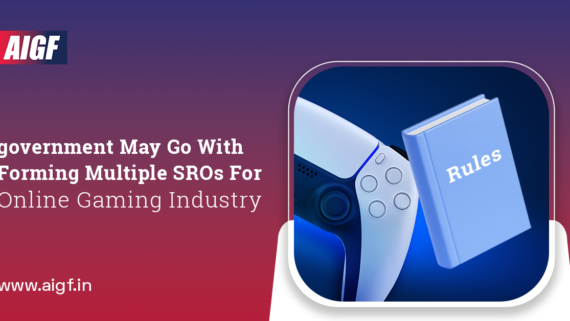Madras High Court explained that games of skill that can be played online for stakes, can’t be sorted as wagering or betting. Further, the Madras High Court struck down the general restriction on rounds of skills per the new amendments to the Tamil Nadu gaming laws and expressed that such a boycott was ultra vires the Constitution and was an ‘over the top and unbalanced’ exercise of power.
Changes In Gaming Laws: What’s At Stake For Online Companies?
The Karnataka government as of late banned all types of online games including money-related stakes. Curiously, this state law came about when the Madras High Court explained that games of skill that can be played online for stakes, can’t be sorted as wagering or betting. Further, the Madras High Court struck down the general restriction on rounds of skills per the new amendments to the Tamil Nadu gaming laws and expressed that such a boycott was ultra vires the Constitution and was an ‘over the top and unbalanced’ exercise of power.
Why has the as of late notified Karnataka Police (Amendment) Act, 2021 (Gaming Act) made such a mix in the online gaming industry and went against unmistakable industry bodies, for example, the All India Gaming Federation and Federation of Indian Fantasy Sports?
The worries
- The Gaming Act currently disallows all types of gaming that include betting or wagering, including games of skill
- The Act is obscure according to the activity and hosting of such online gaming platforms from Karnataka.
Up until the new amendment, Karnataka allowed online games of skill played for stakes and eminently, just banned all types of betting or wagering regarding any games of chance. Be that as it may, the Act presently has changed the term gaming to include online games including all types of betting and wagering. The terms betting or wagering have likewise been amended to include any act of gambling cash or in any case on an obscure outcome remembering including for a game of skill. This would mean any game (even skill-based) which includes users placing in cash to take part in a game (cash paid as enrollment fee or entry fee to partake), and getting an opportunity to win cash.
Games of skill vs games of chance
Throughout the long term, courts have made attempts to make a reasonable differentiation between games of skill and game of chance. Taking into account that the courts have completed this activity after objectively interpreting the terms games of chance and games of skill, through the Gaming Act, the Karnataka government puts the state’s economy at a backfoot, by forbidding any game which includes the act of gambling money, and making the Act unmistakably subjective.
Another amendment that has made concern the gaming business is the definition made to instruments of gaming, which presently incorporates computers, computer systems, mobile apps, internet or cyberspace, virtual platforms, software, accessories used as a subject or means of gaming. Thinking about the broad construct of the definition, there is an absence of lucidity on whether computer resources used to host or operate online gaming platforms i.e., utilized as a subject or method for gaming – would be considered ‘instruments of gaming’, regardless of whether such platforms are not offered or accessible to users in Karnataka.
Further, if the platform is considered as an instrument of gaming, the spot wherein these computer resources are arranged or put away would establish normal gaming houses. This would straightforwardly affect online gaming organizations with workplaces and servers in Karnataka since such places would be viewed as typical gaming houses. The Act makes the activity of a typical gaming house a punishable and cognizable offense which gives the police the option to start the activity without a warrant or earlier sanction by a judge.
An urgent need for explanation
The public authority should explain that gaming organizations can keep on working their business inside the state, so long as they don’t give online gaming to users in Karnataka. In case there is no explanation given, gaming organizations would hope to move their operations outside the state, which impacts the economy as well as be considered to be a violation of their key right to practice any trade. The ambiguity in the definition of instruments of gaming further uplifts the dread of gaming organizations to work inside Karnataka, since the police are not prepared in the legal translation of the law; and there is a danger where the police might even consider working the gaming platform to be in resistance under the Act and may use their powers to confine these organizations’ activities in Karnataka.
According to the severe prohibitions and questionable language in the Gaming Act, it might very well be fascinating to perceive how gaming organizations rebuild their activities in Karnataka and take into account the users. In any case, passing by late patterns, where courts have underlined that games of skill, regardless of whether playing for stakes, ought not to be considered as a type of betting or wagering; almost certainly, the Act may likewise be challenged before the Karnataka High Court. Truth be told, the All Indian Gaming Federation, Mobile Premier League, and three different petitioners from the gaming business have as of late filed a writ appeal before the court against the state’s Gaming Act.
What is to emerge from this request? This would be a pause and watch circumstance. Notwithstanding, it very well might be useful for the state government to reexamine its situation, after taking input from the gaming business players, to guarantee that the Act is adjusted. This should be possible with a concentration to lessen gaming fixation and yet, likewise, remember that the law should not affect people’s vocation, i.e., those people who are proficient gamers, that play games of skill for stakes, inside a well – set up a set of rules and guidelines set somewhere near the gaming business; or violate an individual’s central right to trade.
Credits: The Economic Times











Comments
Comments are closed.